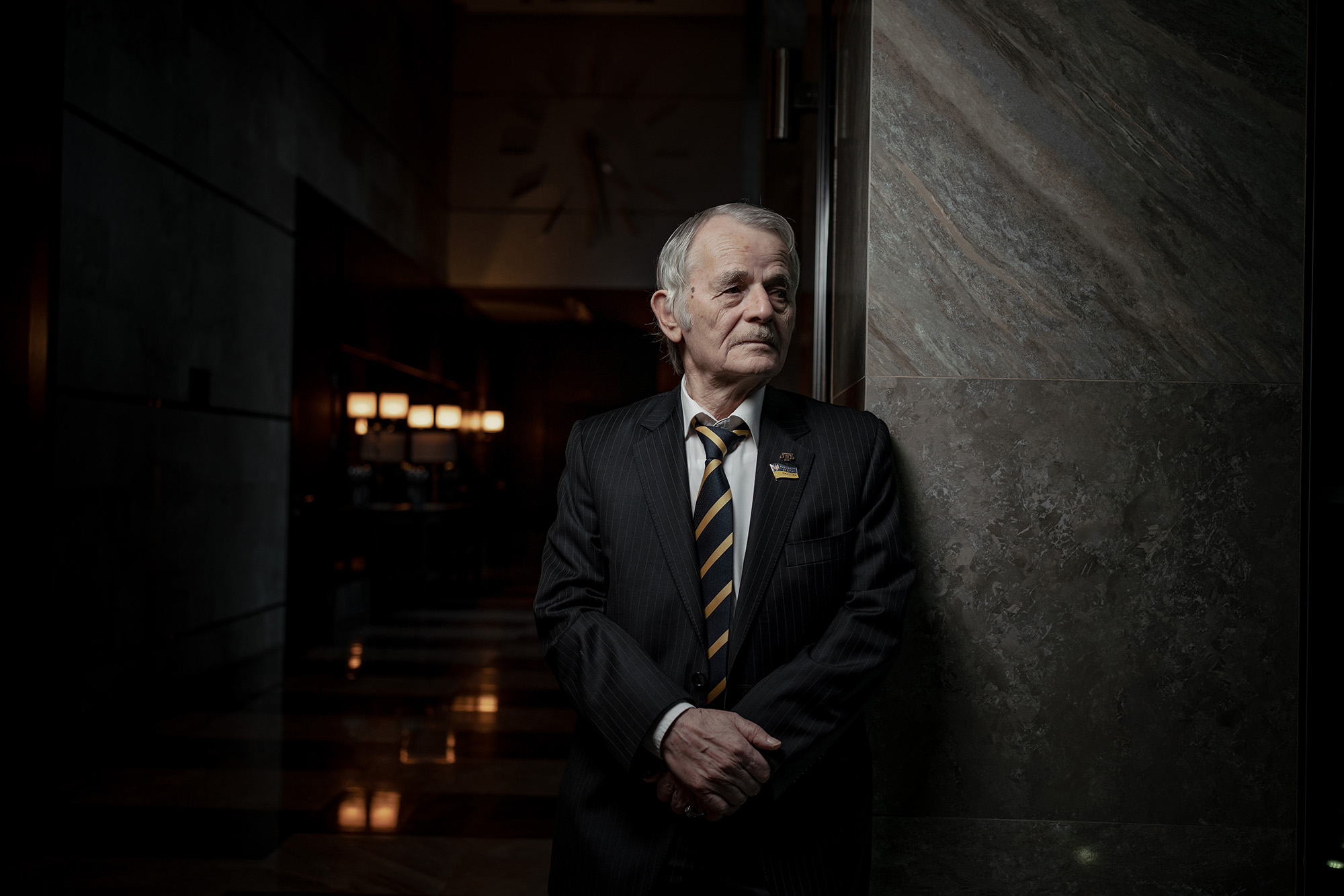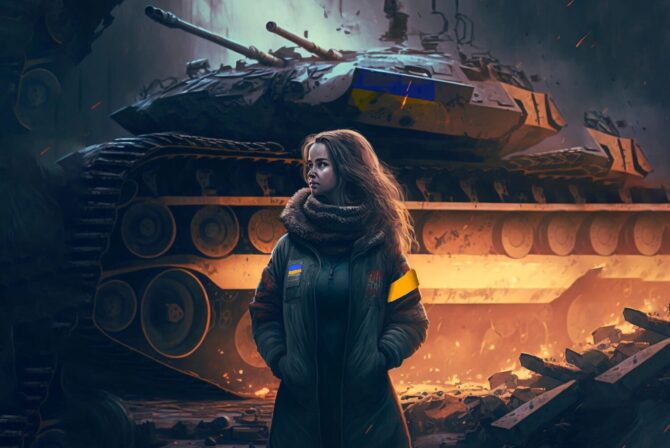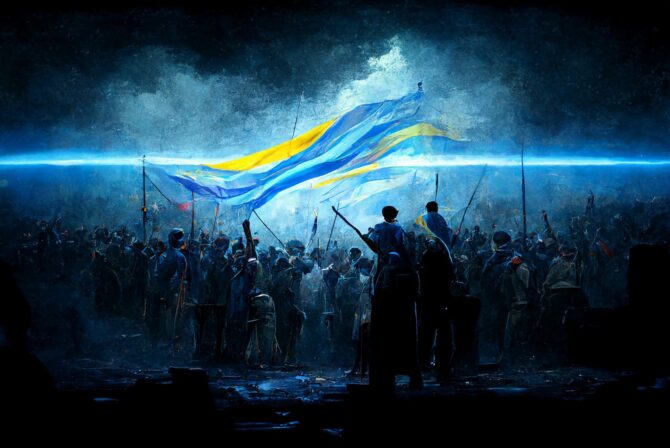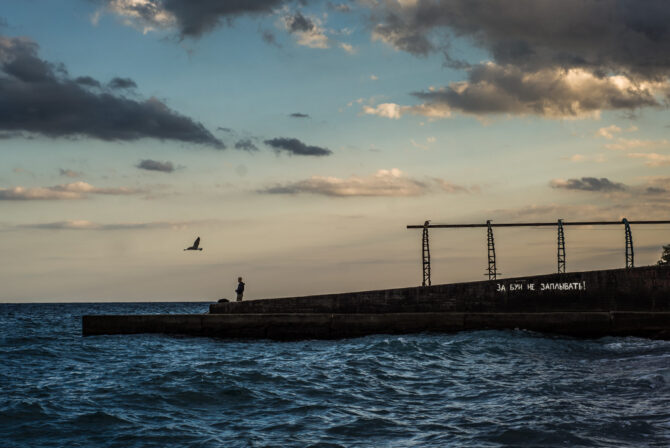This conversation starts with coffee. They bring us miniature cups (“filcan” in Crimean Tatar) of the fragrant beverage. “This is Ottoman coffee. Straight from Turkey,” says Mustafa Dzhemilev’s assistant. Mustafa-aga takes the first sip and says with a smile, “You can start your interrogation. But I will smoke. I was even allowed to do that during real interrogations.”
§§§
The Ukrainians Media is an award-winning independent media company focusing on high-quality, long-form, and visual journalism. Our mission is to foster positive social changes in Ukraine.
This story was created thanks to the support of our readers. Please join The Ukrainians Community on Patreon and help us publish more important and interesting stories.
§§§
They ‘Welcomed’ Us with Stones Not Greetings
“I am often asked if I miss Uzbekistan, where I lived until 1989. My main association with Uzbekistan is the prison in Tashkent. I was sentenced seven times plus the eighth time in absentia after Crimea was occupied.”
Mustafa Dzhemilev’s earliest memories start at the age of three or four. His first memory is of his family moving to another village, having previously received permission from the commandant’s office: “I remember hearing jackals or wolves howling in the distance. I got scared that the predators would eat us—or at least pretended to be. My parents tried to calm me down: my mum held me tightly to her chest and my dad said he would not let anyone eat us.”
He does not remember the deportation—he was just a baby at the time. But he knows what it was like because all the families experienced the same thing. The police hammered on the door with at the crack of dawn, at four or five in the morning, with rifle butts and ordered people to pack their belongings in fifteen to twenty minutes. “People were only allowed to take up to twenty kilograms of luggage,” Mustafa-aga says. “Then they sent them on trucks or horse carts to Suren, a train station near Bakhchysarai, or to the train station in Simferopol. From there they sent people in freight trains to Central Asia. Some were sent to the Urals to cut wood.”
Little Mustafa’s family—his mother and five children—ended up in Uzbekistan. His father was still at war. Two younger children were born in a foreign land.
Mustafa-aga remembers that the locals did not give the newcomers a warm welcome.
“It was believed that the Crimean Tatars would do well in Uzbekistan because the people there were also Muslims,” he says. “But the Uzbeks were Soviet people. They were brainwashed with propaganda about Crimean Tatars being traitors and enemies of the people. So the locals ‘welcomed’ the trains full of deportees with stones, not greetings.”
But it was mostly elderly people and women with children who got off the trains. The men were still fighting in the war.
Islam, their common faith, did not promote mutual understanding. Mustafa Dzhemilev recalls that in the village where his family lived, there was only one mosque they could attend: “But the imam bluntly called the Crimean Tatars traitors and enemies of the people.”
So the Crimean Tatars in exile did not go to the mosque. They prayed at home.
Mustafa-aga adds that they met all kinds of people and says that he had Uzbek friends when he was a young boy and could speak Uzbek: “It so happened that I spoke Uzbek better than my native Crimean Tatar. I could hardly speak Russian. When I started school, I knew two expressions: khorosho (“good”) and idi syuda (“come here”). And, of course, swear words.”
A Soviet school, pioneers, Little Octobrists, schooling in a foreign language. Education in the USSR was completely russified. It had no place for the family’s memory of the geocide. How was one supposed to cope with that?
“There were twenty-five students in my class, and half of them were Crimean Tatars. My classmates were from different families—Russians, Uzbeks, Koreans.”
Dzhemilev recalls that Crimean Tatars always stuck together in school and helped each other:
“That’s why others did not dare insult Crimean Tatar students—other Crimean Tatars always stood up for them.”
Was it difficult to learn Russian? Not really, because the children grasped everything quickly. Mustafa Dzhemilev was known at school as a talented poetry performer. “I was always a winner or runner-up in poetry recital contests because I could recite poems well,” he says. “I even got a prize once—a desk lamp. I especially enjoyed reciting Shakespeare’s Hamlet.”
It Did Not Become Any Easier After Finishing School
In the field of education, the Soviet Union pursued an unwritten discriminatory policy that denied Crimean Tatars access to higher education. Mustafa-aga jokes that these unfair practices explain why there are so many construction workers among Crimean Tatars—other professions were off limits to them:
“Wherever they were resettled, Crimean Tatars had the right to attend elementary and middle school. But high school, that is full secondary education, was off limits. The ban was lifted only after Stalin died and the personality cult was denounced. Crimean Tatars also had no access to universities. At best, they could graduate from vocational schools. Even in Khrushchev’s time, Crimean Tatars could enroll only in certain disciplines at certain universities. Journalism, history, philosophy, philology—all these subjects were taboo for us.”
So after graduating from school, Mustafa worked as a lathe operator and metalworker—after his first failed attempt to enroll in the university:
“After finishing school, I tried to enroll in the Arabic language department at the University of Central Asia. Khakimov, the head of the admissions committee, approached me and recommended that I withdraw my application. He said I would not be accepted anyway. I asked him why. He said that I would not pass the entrance exam. Then he added that I had better not waste my time on the exam because they had been instructed not to admit Crimean Tatars to this faculty.”
Later Mustafa Dzhemilev found out that graduates of this department were sent to Arab countries as KGB agents. “You can not make KGB agents out of Crimean Tatars,” he says, wrapping up this story. In 1962, he enrolled at the department of irrigation and drainage in Tashkent.
He was expelled from the university. Before that, however, the Crimean Tatar Youth Association, founded in 1960, had been destroyed. Mustafa-aga recalls, “They did not throw me in jail because I was not yet eighteen years old. I was just fired from my job. A little later I was expelled from the university as an ‘anti-Soviet person’ This time I was imprisoned.”
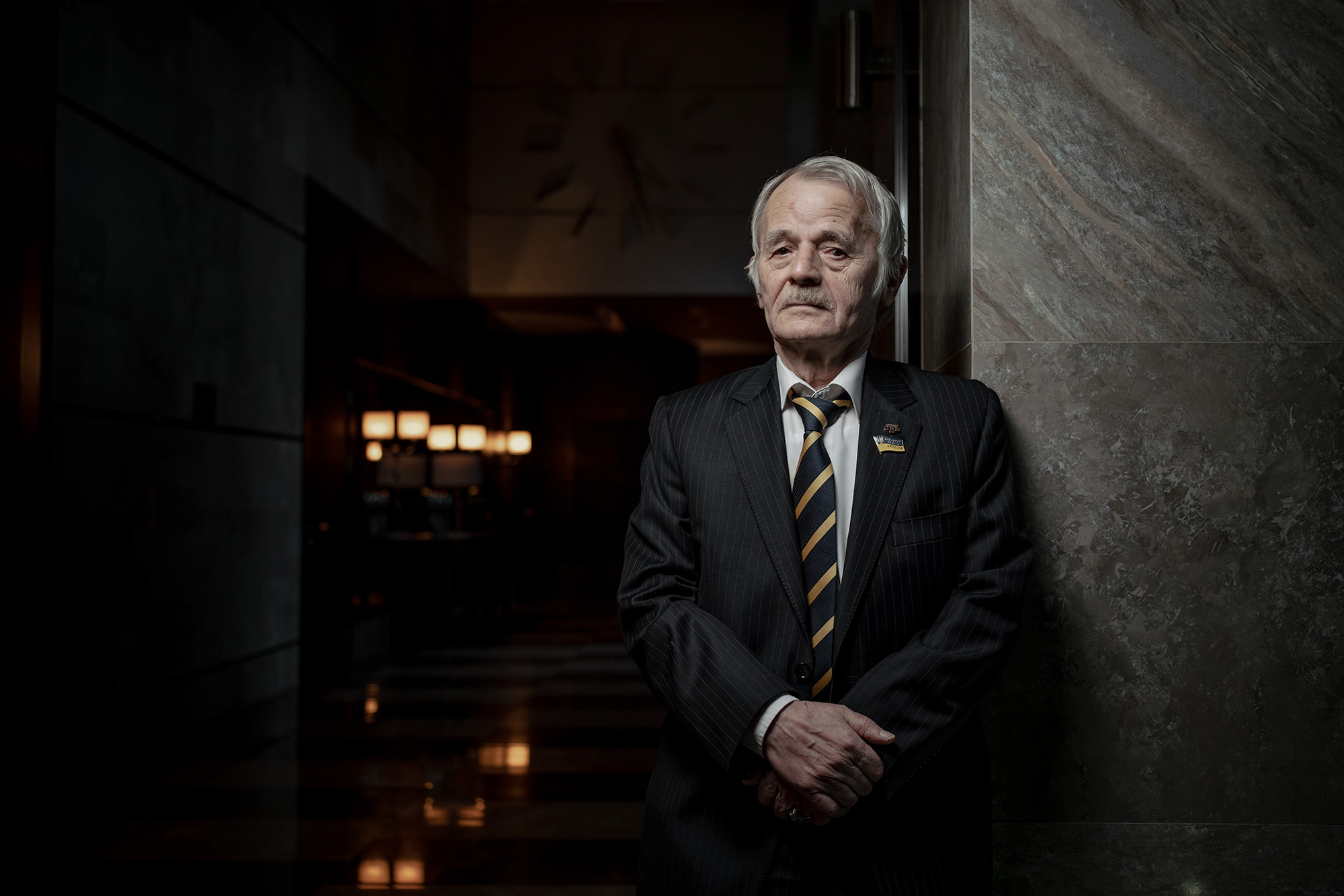
The reason was his refusal to serve in the Soviet army. “The recruiting center summoned me and handed me the draft papers. I told the enlistment officer that I did not understand the logic of the Soviet government, which wanted to give an ‘anti-Soviet man’ an assault rifle. The enlistment officer was unimpressed and said they would give me a spade and send me to a construction battalion. I said I might still think about the assault rifle, but I would not take a spade.”
They forced Mustafa Dzhemilev to write a letter of refusal to join the army, in which he explained his motives. “I wrote that the Soviet army was supposed to defend the motherland against attacks from outside. But I had nothing to defend because I had no motherland—the Soviet government had taken it away from me,” he says.
The criminal investigation was opened for ‘draft evasion’ not for his refusal to serve. This was to invalidate the political aspect of the charges. But all the other arrests were politically motivated.
Inequality and Discrimination United Us
How have Crimean Tatar families managed to preserve their culture under the conditions of total Russification? Mustafa Dzhemilev believes that this was the result of a mistake made by the Soviet government, which underestimated the consequences of social inequality.
“Had the Crimean Tatars been put on an equal footing with other citizens of the Soviet Union after the deportation and genocide, things would have been different,” he says. “But inequality and discrimination welded us together very strongly. As a result, a powerful national movement emerged.”
The mentality of the Crimean Tatars was shaped by the family. A pleasant tradition—mutual visits—served this purpose.
“There was even a schedule—people were supposed to visit each other in turn,” Mustafa-aga says. “It was considered rude to visit someone twice in a row without inviting them first, without returning the visit. The hosts always put the best food on the table. For example, they may not have put sugar in their tea when they drank it alone, but they always put sugar on the table when guests came to visit.”
People brought their children and spoke Crimean Tatar to their friends. What did they talk about? “We all talked about Crimea. Deportation was one of the central topics—we remembered who was deported and how, who died on the road and who survived. We also remembered how the soldiers behaved and other details. Many people had only the Koran with them—they thought they would be shot, just as Jews were shot by Germans.”
I wonder if one could learn more about Crimea from those conversations and imagine, for example, a sea and other Crimean landscapes. The answer is simple.
“Our attitude toward Crimea was different,” Mustafa-aga says. “We did not think about its attractions. We just knew that it was our motherland. And our attitude toward Crimea would have been exactly the same even if there had been no sea or mountains there, just bare steppe.” But after little Mustafa learned to read, he looked everywhere for information about Crimea—its landscapes, natural wonders, or even just outlines on the map.
Listening to adults, the boy better understood the world around him. His reaction to Stalin’s death illustrates this perfectly.
“Dad was happy to hear the news. He said, ‘Stalin has finally died like a dog.’ But everyone in the school assembly was crying. I could hardly believe it. I thought they were just pretending. In one of the classrooms I saw a teacher sobbing and banging his head against the blackboard. Three days of mourning were announced, but I almost shouted ‘Hooray!’ because I had three days off school,” Dzhemilev recalls.
Geography and history were his favorite subjects at school. But Soviet history was colored by communist ideology—it had no place for the memory of the Crimean Tatars, just as it contained no truth about Ukrainians. But Mustafa found an antidote: he compared the chapters from the textbooks with what his father and other relatives told him.
“My older brother also had a big influence on me,” he says. “He read a lot and instilled in me a love of reading. My brother taught me to read between the lines and pay attention to numbers. My favorite book was The USSR in Numbers, which had statistical data and how it compared to capitalist countries. They could lie there too, but not really. The numbers helped me understand the difference between the Soviet Union and the West.”
At school, Mustafa amassed a wonderful library—when his parents sent him to the grocery store, he kept the change and spent it on books. Most of all, he loved books about the government systems of different countries. “I saw that democratic countries were good,” he says, “and the Soviet system was shit.”
“and others”
Discrimination against the Crimean Tatars was most evident in the restriction of their freedom of movement.
“There was a special regime—the commandant’s supervision. Adults had to come to the commandant’s headquarters every week and sign a paper confirming their physical presence. If they wanted to travel anywhere, they first had to get permission from the commandant’s headquarters. But they almost never got permission. If you crossed the four-kilometer ‘border’ around your village, it was considered an escape and you could be sentenced to twenty-five years in prison for it.”
The Soviet government intended to turn Crimea into an all-Russian region with a Russian way of life. They wanted to eradicate the Crimean Tatars as an ethnic group.
After their deportation, the authorities took radical measures to destroy their entire cultural heritage—language, literature, music, traditions and even architectural monuments. Mustafa-aga recalls that tombstones from Crimean Tatar graves were often used to build roads in Crimea. They did the same with matzevas from Jewish cemeteries.
When Khrushchev denounced Stalin’s cult of personality in 1956, the nations that suffered deportation were publicly named. But not all of them. Mustafa-aga draws attention to the phrase ‘and others,’ which included the Crimean Tatars in particular. Some nations were allowed to return to Crimea, but the Crimean Tatars were not. “The truth is that ‘and others’ were banned from returning to their homeland,” he says. “Only the administrative supervision of the Interior Ministry was lifted.”
Mustafa Dzhemilev says that after the deportation, most deaths were caused by forced labor in the places of exile:
“We conducted our own census in the late 1950s. And we found that within two years we had lost 46% of the population. That was the reason why the Verkhovna Rada of Ukraine recognized the deportation of the Crimean Tatars as genocide.”
After the deportation, the government also implemented the policy of family separation: after World War II, the men were not allowed to return home. Instead, they were assigned to the labor army. The goal was for the survivors to ‘dissolve’ among other people: “That’s why we had so many mixed families. Some women married Uzbeks.”
A whole series of unwritten rules were enforced. Mustafa-aga says, “The written rule proclaimed that all nations were equal. But the reality was different—some were more equal than others. In general, ‘item 5’ was in force. [1] Thus, after deportation, many people registered as ‘Tatars,’ but it did not change anything if their birthplace was ‘Crimea.'”
After Stalin’s death and the denunciation of the cult of personality, Crimean Tatars were allowed to resettle, but only within the borders of a district or region—at best, within the borders of the republic. Later, they were also allowed to enroll in universities. However, they could only study certain subjects. After graduation, they were only allowed to apply for certain jobs.
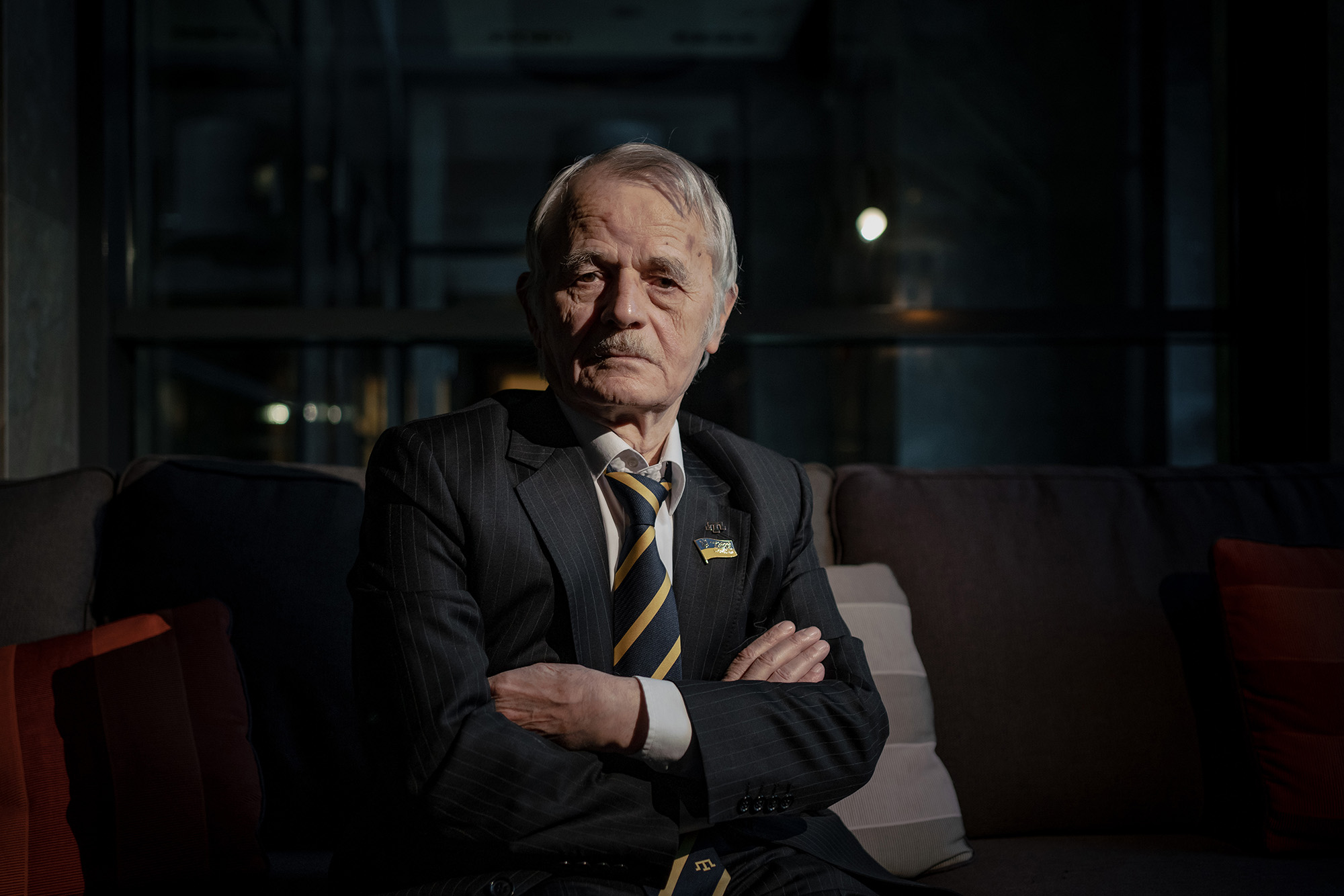
They were allowed to publish a newspaper in Crimean Tatar. It was titled Lenin Bayragı (Lenin’s Banner) and was a mouthpiece of the Central Committee of the Communist Party of Uzbekistan. The Crimean Tatars were also allowed to establish the Haytarma Song and Dance Ensemble, set up a department of Tatar language and literature at the Pedagogical Institute in Tashkent, and publish a few books in Crimean Tatar each year. In return, they were forbidden to use the term ‘Crimean Tatar nation’—one was allowed to write only ‘Tatars’, without reference to Crimea.
Mustafa Dzhemilev summarizes these ‘privileges’ granted by the Soviet government: “They were supposed to mean that all the cultural needs of the Crimean Tatars were satisfied. And that anyone who raised the question of autonomy was a radical, an extremist, and an instigator.”
The First Crimea
Did his first visit to Crimea—still illegal—correspond to his childhood fantasies about the peninsula?
“I visited Crimea for the first time after serving another sentence and spending a year and a half under supervision,” Mustafa-aga recalls of his very first vacation. That was in 1973.
“By that time, I was already quite well-known among members of the Crimean Tatar movement,” he says. “By the way, at that time there were up to two thousand Crimean Tatars living on the peninsula, who referred to the decree of the Presidium of the Verkhovna Rada USSR of October 5, 1967 on ‘Rehabilitation of Tatars who used to live in Crimea.’ All of them stayed illegally. According to the informal instructions, they could not obtain official residence permits.”
Mustafa-aga flew from Tashkent to Crimea. He sat next to a pretty student:
“She lived with her parents in Simferopol. In one of the old Crimean Tatar houses. After the Crimean Tatars were deported, apartments like this were given to the newcomers from Russia. When she heard that I was in Crimea for the first time, she began to describe its attractions—the sea, the mountains, the air. But she said she was concerned that the Crimean Tatars had begun to return to Crimea. If they were allowed to apply for a residence permit, she said, they would soon start slashing Russians and taking away their houses.”
At Simferopol airport, she asked Mustafa Dzhemilev about his impression of their Crimea, and he said that it was actually his Crimea: “She was surprised to hear that I was from the peninsula—was a Crimean Tatar. And that I was not planning to slash Russians because I had more serious things to do. And that we were not planning to take away their houses either—we would build new ones.”
A large group of Crimean Tatars met Mustafa Dzhemilev outside the airport. They took him to Ai-Petri and other beautiful places in Crimea as their guest, but they all talked about one thing: how to get the authorities to issue residence permits to Crimean Tatar families. The police and vigilantes caught Crimean Tatars without residence permits and expelled them from Crimea. Two hundred people were convicted of “malicious violation of passport regulations.” But they returned and tried again to get the residence permits.
There were also success stories. “Shortly before my arrival, Abdraim Reshidov, a military pilot and hero of the Soviet Union, received a residence permit in Simferopol,” Mustafa-aga says. “He threatened to burn himself to death in Simferopol’s central square if they did not give him a permit. Musa Mamut’s family in Besh-Terek (Donske) village in Simferopol district also received the permit… but only after Musa had set himself alight. The authorities tried to persuade some Crimean Tatars to cooperate with the KGB in exchange for residence permits.”
The KGB spied on Mustafa Dzhemilev during his visit to Crimea.
He remembers ‘the snoopers’ and what they did: “They spied on us for the whole month. They even slept in the cars parked next to the houses where I stayed. It’s still not clear to me why they went to so much trouble if they could not even eavesdrop on us because we spoke Crimean Tatar.”
He visited Crimea for the second time after his exile in Yakutia: in 1982, Mustafa Dzhemilev came to the peninsula with his wife and newborn son.
“We lasted only a few days,” he says. “Then the state security police came to my friend’s house in Saky, where we lived. They told us to get in the car and sent us to Abinsk in Krasnodar Krai and later to Uzbekistan.”
He came back for good in 1989, when Crimean Tatars returned en masse to their homeland. Shortly before, Mustafa Dzhemilev had been elected chairman of the Organization of the Crimean Tatar National Movement. But he was denied a residence permit, as were other Crimean Tatars.
“However, we were able to organize rallies and protests to defend our rights. The police dispersed them, but no one was convicted or put in prison for years,” Mustafa-aga recalls. He adds that everything indicated that the Soviet Union was heading toward its end.
Returning to Crimea is a significant milestone for many generations of Crimean Tatars—it is a memory of the motherland, a dream of the motherland, memories of life far from the motherland. The intergenerational experience can spark heated discussions, as we see in Homeward, a film by Nariman Aliev. The filmmaker’s parents came to Crimea from Uzbekistan in the 1990s.
Nariman admits that he realized certain things about the deportation only later: “The children who were born in Crimea do not know anything about the deportation and the USSR. You do not ask yourself many questions because you are too young. I had to leave Crimea to understand who I am. I studied at the university in Kyiv and only then, after I returned, I better understood myself, my past and the place where I belong… And then the occupiers came and seized Crimea.”
The filmmaker says that it was only after the occupation and forced relocation from Crimea that he understood what the older generation went through, “I realized the price you pay to be who you are, to just exist. The Crimean Tatars will disappear as a nation if a generation decides that it no longer wants to pay this price. Three generations are enough to forget.”
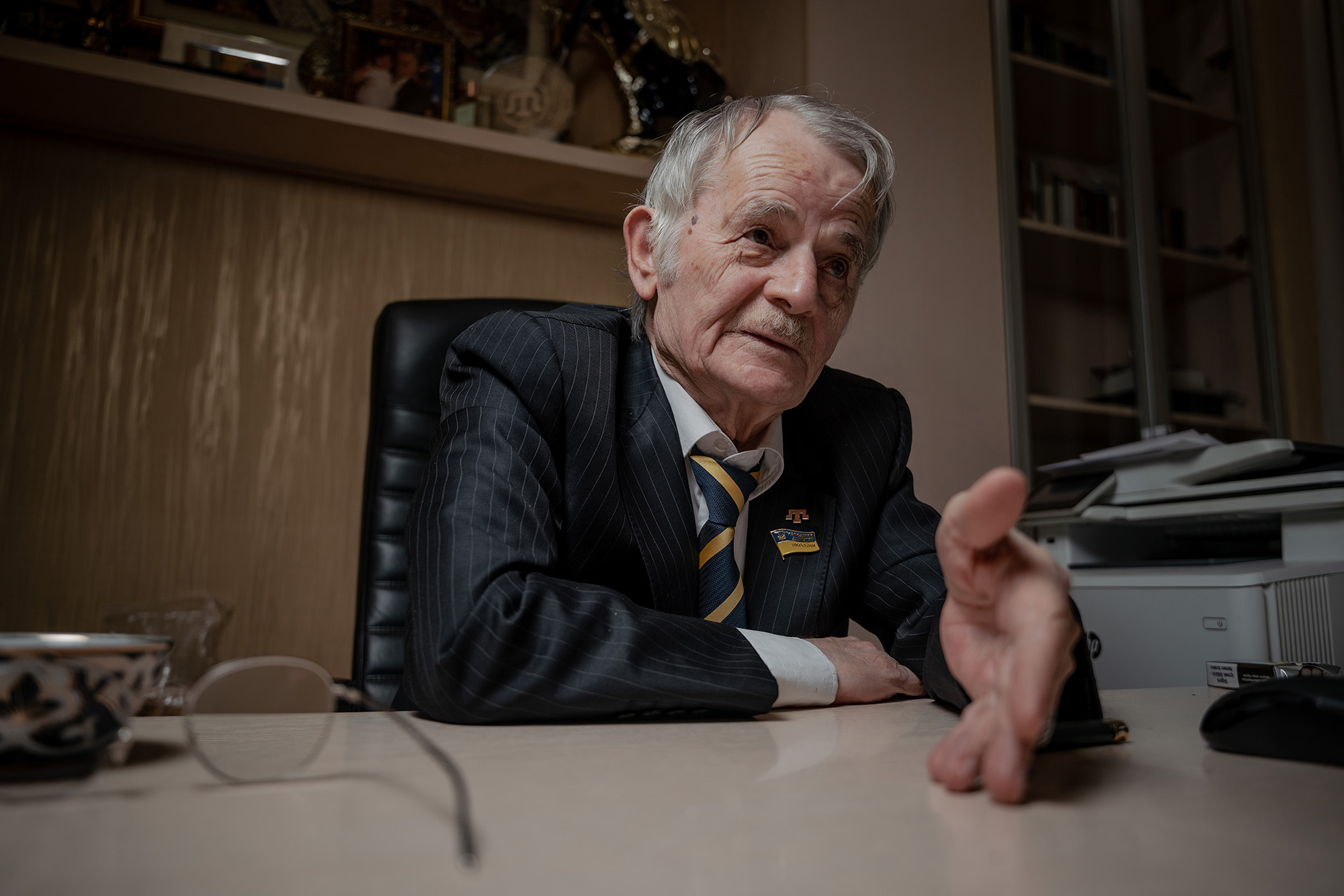
“With this war, we are also paying our price. It is high, but it will give the next generations the chance to pay less,” Nariman Aliev sums up. He believes that the return to Crimea was only the first step—the struggle is not over yet. The same will happen after the de-occupation of Crimea.
“The Crimean Tatars were considered enemies—traitors, enemies of USSR. The Soviet narrative still reverberates. But since 2022, there has been a realization that we have our own history and our own understanding of it. This allows you to reconcile simple facts and acknowledge, for example, that Ukrainians and Crimean Tatars have many more things that unite them than divide them. Sure, our religions and languages are different, but the struggles and fights of our nations are very similar. Persecutions, deportations, the eradication of the national intellectual elite—this is our common experience.”
The filmmaker believes that Ukraine must treat the Crimean Tatar people as a subject: “It is important for everyone in Ukraine to realize that Crimean Tatars do exist. For example, many people did not know about the Crimean Tatar language. We still have to fight for our right to exist as a systemic actor in Ukraine. A single film or song can not change the game, but they drive change.”
If I Stopped, It Would Be a Bad Sign for Others
What did the return to Crimea look like in a purely practical sense? The right to live in the motherland depended on the residence permit. “Crimean Tatars were denied residence in Crimea,” Mustafa-aga says. “Even bribes did not help, because there was clearly a political element involved. No one wanted to take the risk.”
After Stalin’s death and until 1967, Crimean Tatars were not allowed to stay in Crimea for more than 24 hours without a residence permit. Later, there were unwritten instructions to refuse permits and jobs.
Mustafa-aga describes a typical scheme for buying a house at that time: “A family would come and buy a house. Ordinary people did not know that they could not sell property to Crimean Tatars—there was no law forbidding it. But notaries did not register deeds. Residence permits were not issued either. People had to find a job first, but you could not get a job without a residence permit. Under these circumstances, Crimean Tatars, first, overpaid for the houses and, second, signed ‘Tatar contracts.’ The property owner confirmed that they had sold the house for a certain amount. They took the money, gave the receipt, and vacated the house. And the Crimean Tatar family got entangled in the bureaucratic hassle with the authorities. The former owners were often pressured to revoke the contract. But they could not return the money, and some of them had left the peninsula right after the sale, so the authorities could not find them. The cases dragged on for years—warnings, fines, prison sentences for violating passport regulations. People could be sentenced to three years in prison.”
Musa Mamut experienced exactly these persecutions. He began his journey to the homeland in 1975 and in 1978, after court cases and detentions, after more and more criminal cases, he set himself on fire. The uproar was so great—even Andrei Sakharov spoke out—that Musa’s family was finally granted a residence permit.
Mustafa Dzhemilev’s family was also evicted. The police came, told them to pack their belongings, and put them on the train and expelled them from Crimea. The same thing happened to his parents in the 1970s.
It was incredibly difficult to return to Crimea. Was not he tempted to give up the idea of returning home?
Mustafa-aga says he met all kinds of people: “I remember riding on a bus in Tashkent after my release from prison. A Crimean Tatar was sitting next to me. I asked him why he did not go to Crimea. He said it was difficult because people were displaced. I asked him if he was involved in the national movement. He said he was not because there were no true leaders. Mustafa Dzhemilev, he said, had long ago bought a villa on the southern coast of Crimea. Then I opened up, introduced myself and said that I had just been released from prison. I invited him to the meeting of the members of the national movement. But the man got scared and got off the bus at the next stop.”
The KGB spread these rumors. Nevertheless, the Crimean Tatar movement included all Crimean Tatars, who signed collective addresses and petitions, organized protests, and published their own newspapers.
Did he feel tempted not to stick his neck out? Mustafa Dzhemilev says that he felt responsible for the national movement since its infancy: “I was still young when I became prominent in the Crimean Tatar community. I knew that if I stopped, it would be a very bad sign for others. So I kept the bar high.”
Doesn’t he think the Monomakh’s cap is too heavy? Mustafa-aga says the Crimean Tatars had it easier:
“If one of us was arrested, they were immediately a national hero. Everyone rushed to help their family.”
We see the same thing today in Russian-occupied Crimea. The communities support the families of the prisoners and have even invented a new way to pay the fines imposed by the Russian occupiers—they collect the money in 10-ruble coins and bring it in bags or buckets.
“This is an expression of our contempt,” says Mustafa Dzhemilev.
Rukh
Beginning in the 1960s, the Crimean Tatar movement started to build relationships with other dissidents, especially Ukrainian ones. The speech of twelve Soviet dissidents in 1968 was the first document to reach the foreign press that contained a mention of the Crimean Tatars. It was signed by Petr Grigorenko, Alexei Kosterin, and Pavel Litvinov, who later participated in a rally in Moscow against the occupation of Czechoslovakia, and by Crimean Tatar human rights activist Zampira Asanova.
Mustafa Dzhemilev attaches great importance to these connections and interactions. “In this way, the dissidents got an ally—the entire defiant Crimean Tatar nation with proactive advocacy groups in all Soviet republics,” he says. “In return, the Crimean Tatars were given the opportunity to receive samizdat [2] and tamizdat [3] regularly and to pass on information about the challenges and struggle of their people to the West through the dissidents. Our friends and allies not only shared the information, but also compiled and signed petitions in defense of the Crimean Tatars’ rights.”
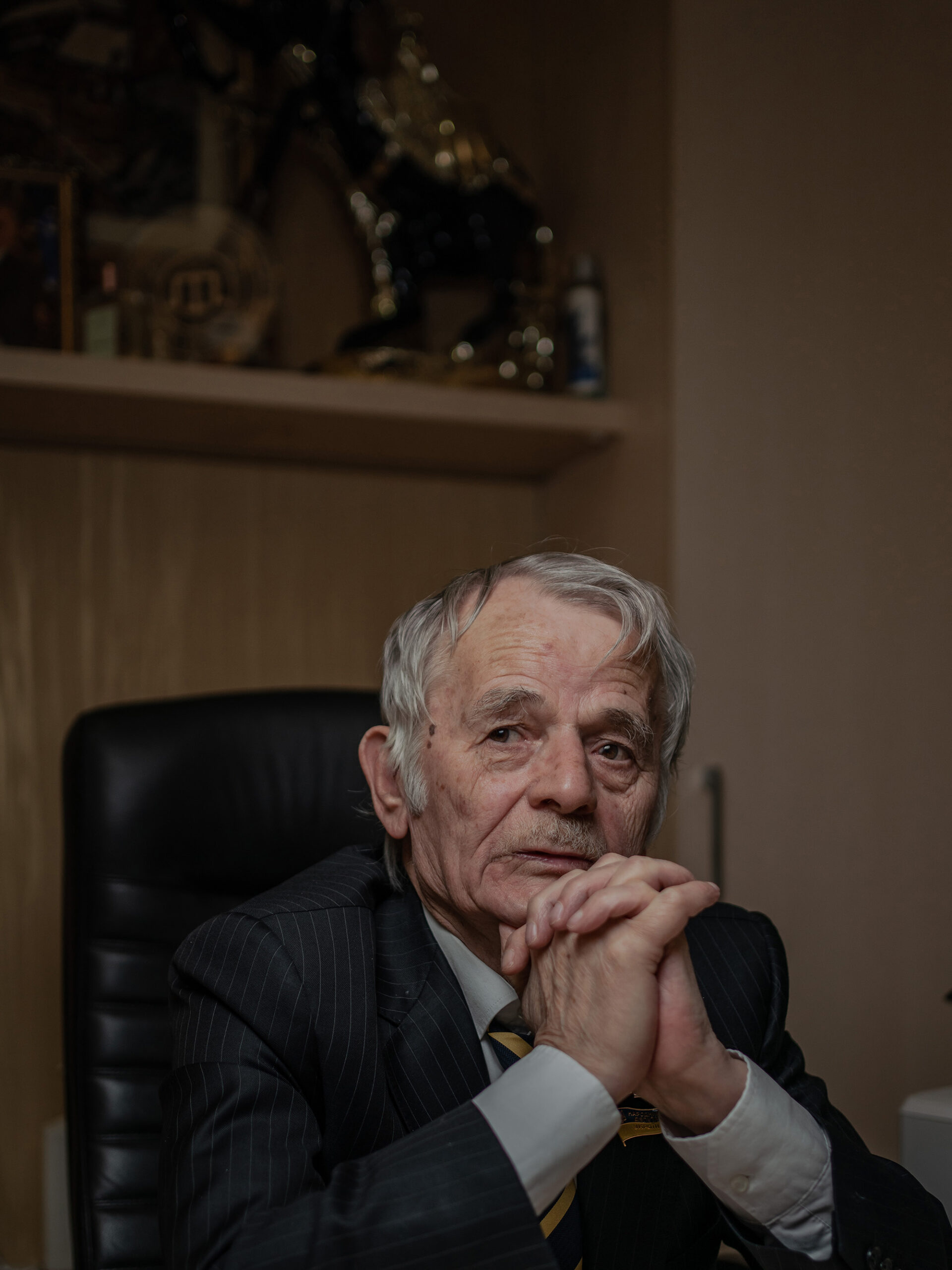
The dissidents learned through Western ‘voices’ and samizdat, including The Chronicle of Current Events, that their fellows were imprisoned. Mustafa-aga recalls learning about Viacheslav Chornovil in just this way: “I knew that he had already been convicted of anti-Soviet activities in 1969. I mentioned him in my own court speech when I was on trial in 1970. I spoke about him as one of the victims of the persecution of human rights activists in Ukraine. During his exile in Yakutia in 1979, he and I corresponded frequently. However, I met him in person only on the eve of independence.”
Mustafa Dzhemilev recalls that it was thanks to Chornovil that the Crimean Tatars adjusted their basic demands: “First, we demanded that the Crimean Tatar nation return to its homeland, that the property confiscated after the deportation be returned, and that the pre-war status of Crimea be restored—the Autonomous Soviet Socialist Republic of Crimea had to be restored as a national and territorial autonomy within the RSFSR.” [4] But in his letters, Chornovil insisted that the Soviet Union would collapse and Ukraine would gain its independence. “He wrote that it would be easier for us to restore our national and territorial autonomy as part of Ukraine than Russia, which would most likely never give up its chauvinism. So, since the 1980s, we members of the national movement talked about restoring our rights as part of Ukraine,” says Mustafa Dzhemilev.
The tradition of cooperation bore fruit. Today, Crimean Tatars are represented in many Ukrainian governmental and non-governmental institutions. Tamila Tasheva, the Ukrainian President’s permanent representative in the Autonomous Republic of Crimea, says that this is a logical result of the earlier efforts of human rights activists: “I believe that Crimean Tatars are natural human rights activists. This has to do with our history, our formation, and our struggle for the right to live in our own country. As members of Ukrainian society, Crimean Tatars must be integrated into all spheres of life—state institutions, the civic movement, and the media. We are citizens of Ukraine and the indigenous nation. And as a member of the indigenous nation, I understand that it is important that all institutions support the Crimean Tatars.”
Tamila Tasheva believes that the Crimean Tatar movement, which advocated the return to the motherland, played a crucial role: “Thanks to Mustafa Dzhemilev, Rolan Kadyev, Veciye Qaşqa, and other activists, the Crimean Tatars were able to return to their homeland. It was a movement of self-sacrifice. Mustafa-aga, for example, spent fifteen years in Soviet labor camps.” Many of these people formed the core of the Mejlis, which was established after the Second Kurultai (convention) in 1991. The Mejlis represents the interests of Crimean Tatars to the government.
At the same time, Tamila Tasheva believes that these institutions—Mejlis and Kurultai—need renewal: “The same people work there today as thirty years ago. They certainly know the methods of struggle from the Soviet period, but not all of these methods are still effective. Sometimes you do not have to fight—sometimes you have to work within the system and build a systemic work. I am not always satisfied with the methods that are used nowadays. I think the whole system needs to be rebooted. Mejlis and Kurultai need a renewal.”
Tamila Tasheva thinks that renewal will be high on the agenda after Crimea is de-occupied. She believes that the community also feels the need for new approaches and new faces.
‘Ukrainian Bourgeois Nationalist’
In order to be effective during the Soviet period, the Crimean Tatar movement had to maintain some sort of representation in Moscow. To this end, the Crimean Tatars regularly ran crowdfunding campaigns—everyone donated as much or as little as they could.
Mustafa Dzhemilev says that the Soviet government considered him a ‘Ukrainian bourgeois nationalist’ —due to his acquaintance and close friendship with Petr Grigorenko.
“I often visited him in his Moscow apartment. Petr Grigorenko was like a father to me. His family received me just as warmly.”
He met Petr through Alexei Kosterin, an old Bolshevik who had been imprisoned by both tsarism and the Soviet government.
“He stood up for the Chechens and demanded that their autonomy be restored. His essay “On Minor and Forgotten,” in which he wrote about the Crimean Tatars, among others, was widely circulated. Petr Grigorenko was his friend. I met him at Kosterin’s birthday party. Our Crimean Tatar delegation had rented a small restaurant to celebrate, but Kosterin fell ill and asked Petr Grigorenko to stand in for him.”
Mustafa Dzhemilev remembers Grigorenko as a person with radical views.
“He was the first person I heard speak about the genocide of the Crimean Tatar nation. He said we must stop asking and start demanding.”
Almost every Crimean Tatar family kept a copy of Petr Grigorenko’s address in their house. “For possession of this copy, the father of Akhtem Seitablayev, a well-known filmmaker, was sentenced to three years in prison. Petr Grigorenko was free, but people were thrown into prison for keeping his texts. The same with Sakharov—he was left alone and others were imprisoned for keeping and printing his self-published texts, which were considered anti-Soviet propaganda.”
Mustafa Dzhemilev believes that few people have done as much good for the Crimean Tatars as Petr Grigorenko, a Soviet army general of Ukrainian descent who led the movement to defend human rights at USSR: “So many years have passed, but among the Crimean Tatars, especially among the older generation, you will not find a single person who does not know who Petr Grigorenko was.” He says that Andrei Sakharov, Alexander Lavut, Anatoly Yakobson, and Alexander Podrabinek were also very involved.
By the time he met Mustafa Dzhemilev, Petr Grigorenko had already served his ‘sentence’: involuntary hospitalization to a mental hospital and demotion to soldier. However, his Moscow apartment was not confiscated. Mustafa-aga visited it frequently: “It was our headquarters.”
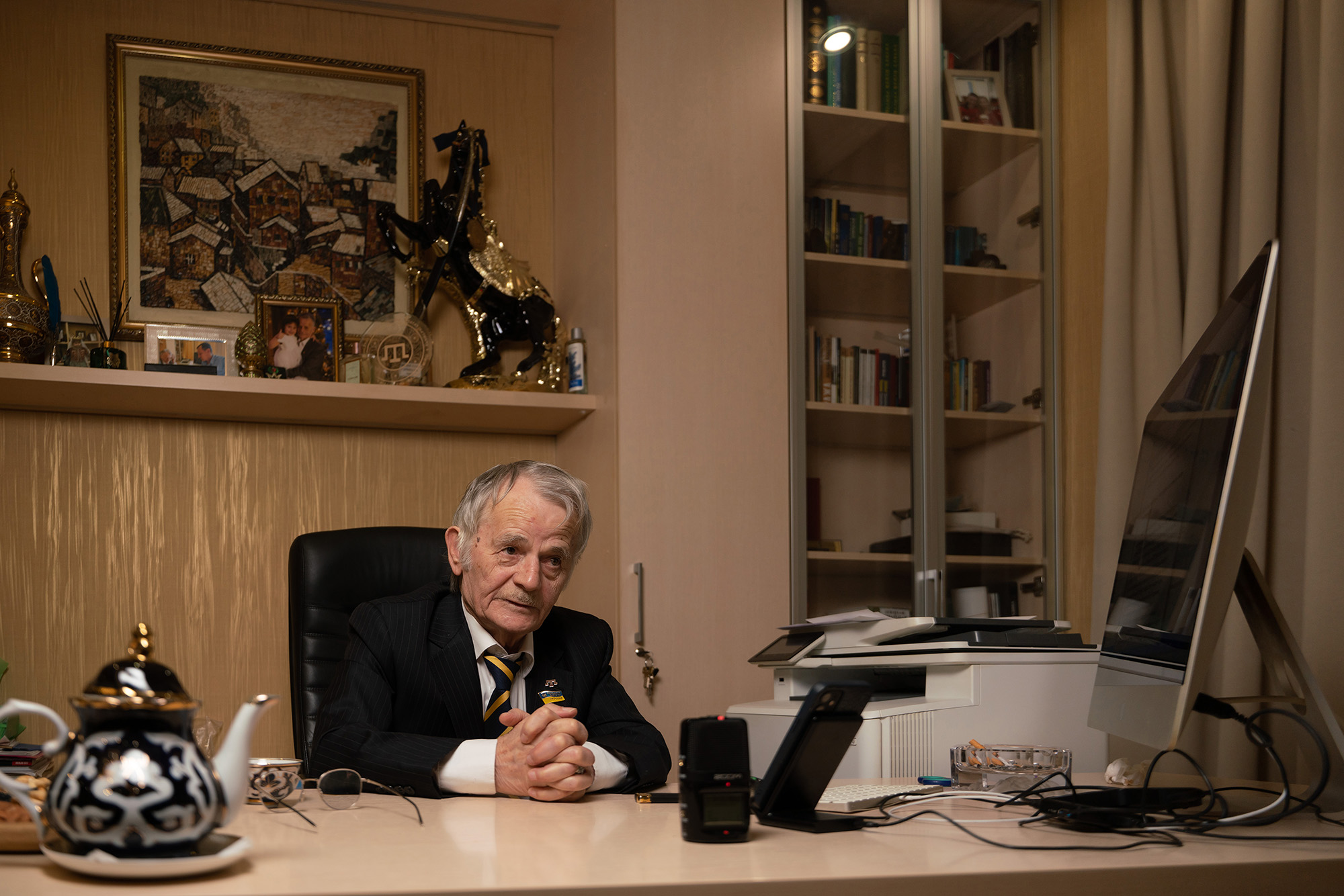
He remembers Petr Grigorenko as an exceptionally empathetic person: “We all got used to the fact that some of us were imprisoned, others went on hunger strike… But Grigorenko always worried about these people and tried to do everything to save them.”
The next day after Kosterin’s funeral, at which important speeches were made, KGD investigators arrived at Grigorenko’s apartment at the crack of dawn. Mustafa Dzhemilev had spent the night there. “While they were searching the apartment, other dissidents gathered in the apartment. Following the instructions, they let everyone in and searched them, but they did not let anyone out. Among the dissidents was Pyotr Yakir, in whose pockets the KGD hoped to find a forbidden object. But Pyotr said he had nothing like that with him, since everyone knew about the search. I thought hard about how I could escape while they searched the place. Detention was out of the question for me.”
Grigorenko’s wife found a piece of rope. They tied it to the radiator to climb down from the third floor. The rope was strong but thin, so the landing was hard. “My hat fell off,” Mustafa-aga says. “I heard a crack in my ankle. But I ignored it and jumped straight into the taxi.”
The police stopped the car, twisted Mustafa Dzhemilev’s arms and took him away for questioning. But it did not go well—his ankle was swollen and they had to take him to the hospital with what turned out to be a fracture. Pyotr Yakir visited Mustafa during the night and urged him to escape again. But after a few days they let Dzhemilev go. They told him to go to Uzbekistan, but they did not give him back his papers: “Zinaida Mikhailovna Grigorenko did not let me go. She said that I would not go anywhere until my ankle was healed. She was the one who later got me my papers.”
Mustafa-aga remembers this time as the most productive. The Grigorenko family received all the progressive reads. But he got his education mainly from meetings with other dissidents: “I was Grigorenko’s secretary for a while. People visited him all the time. I received them when he was not at home.”
Decent People Always Remain a Majority
In such tough circumstances, it can be difficult to know whom to trust. But the dissidents had their own answer to that question:
“There is a rule in prison that you should not trust anyone until you make sure they are a decent person. But the dissidents adhered to another rule: you should trust people until they showed that you should not trust them. The principle of trust proved to be more productive. Yes, there were informers and scoundrels. But decent people always remained a majority,” Mustafa-aga says.
He recalls that his openness won him a large circle of friends, even in prison. There was always the danger of running into an informer, so they laid down special rules of communication. Certain things, for example, could not be discussed with anyone.
But overall, openness was the best strategy.
They Will Be Fighting for Crimea
Many people who vacationed in Crimea at least once before 2014 have noticed that Crimean Tatars usually switch into Ukrainian very easily—even in restaurants and at the market. Why is this so?
Mustafa Dzhemilev explains that at all Crimean Tatar rallies and in schools, it was always said that Russian language holds little promise for Crimean Tatars: “For us, the opportunities to get a good education and make a career were connected only with Ukrainian.” One of the reasons was resistance to Russian connections: “We ruled out the possibility of changing the borders and statehood. Our guiding principle was that our country is Ukraine. Our future lies in it.”
Mustafa-aga recalls a striking episode—the 1991 independence referendum: “The situation in Crimea was complicated. It was assumed that the peninsula was completely under communist control. According to the census, 55% of the population was Russian. In such a situation, every vote counted. The Crimean Tatar community made up about 4% of the population of Crimea, but we were very organized and active. We went to every village and town and urged people to vote for independence. Crimean Tatars accounted for a large part of the 54% vote for independence, going to polling stations and casting their ballots.”
Solidarity has been helping Crimean Tatars survive under Russian occupation since February 2014. Mustafa-aga believes the current situation is worse than in Soviet times, “Back then, you could be sentenced to up to three years if you spoke out against USSR. Today, people are sentenced to 17 or 18 years if they speak out against Russia or condemn the invasion of Ukraine—they call it terrorism and an attempt to seize power. In comparison, the Khrushchev times look almost like democracy.” The kidnappings and murders are also shocking.
Under the occupation, Crimean Tatars are not allowed to organize meetings of advocacy groups or rallies, “If three people gather, it is considered an unauthorized assembly. But there are ways to get around the ban: wedding parties, birthday celebrations, anniversaries. Or home visits and prayers. You can not ban them.”
What will Crimea look like after the de-occupation?
“I have always said that Crimea must be liberated by diplomatic means,” Mustafa Dzhemilev says. “But now I think these methods have been exhausted. They will probably fight over Crimea.” He adds that the Crimean Tatars are not afraid and are looking forward to it. The most important thing is that they stay away from the airfields and military bases.
Meanwhile, the Russians are mobilizing people in the occupied territories by force, which is a war crime. Mustafa-aga says that the Russian administrations in Crimea draft disproportionally many Crimean Tatars: “We have called on our fellow citizens not to enlist or take an oath before the Russian occupiers. Mobilization is an almost surefire path to death.”
For a time, people were urged to look for ways to surrender to the Ukrainian army as soon as possible. “But that’s no longer possible because of the Russian anti-retreat forces,” Mustafa-aga says. “So the conscripts will return to Crimea as corpses.”
Another strategy Mustafa Dzhemilev mentions is leaving Crimea: “We did not call for that, and I do not think it’s a good idea.” He explains that in some settlements there are only women and children left. And this is dangerous: “If the Russians start pogroms against the Crimean Tatars, there will be no one to defend our families.”
Hostility toward Crimean Tatars has deep authoritarian roots. Mustafa Dzhemilev recalls how the ‘new Crimeans,’ brought to replace the deportees, treated the Crimean Tatars, and mentions the newspaper articles full of hate speech: “The Russian and pro-Russian press claimed that the Crimean Tatars were dangerous. If there were too many of us, they claimed, there would be a danger of ‘another Chechnya’ or ‘another Kosovo.’ Fortunately, there was no monopoly on information in independent Ukraine. So other publications debunked these false claims.”
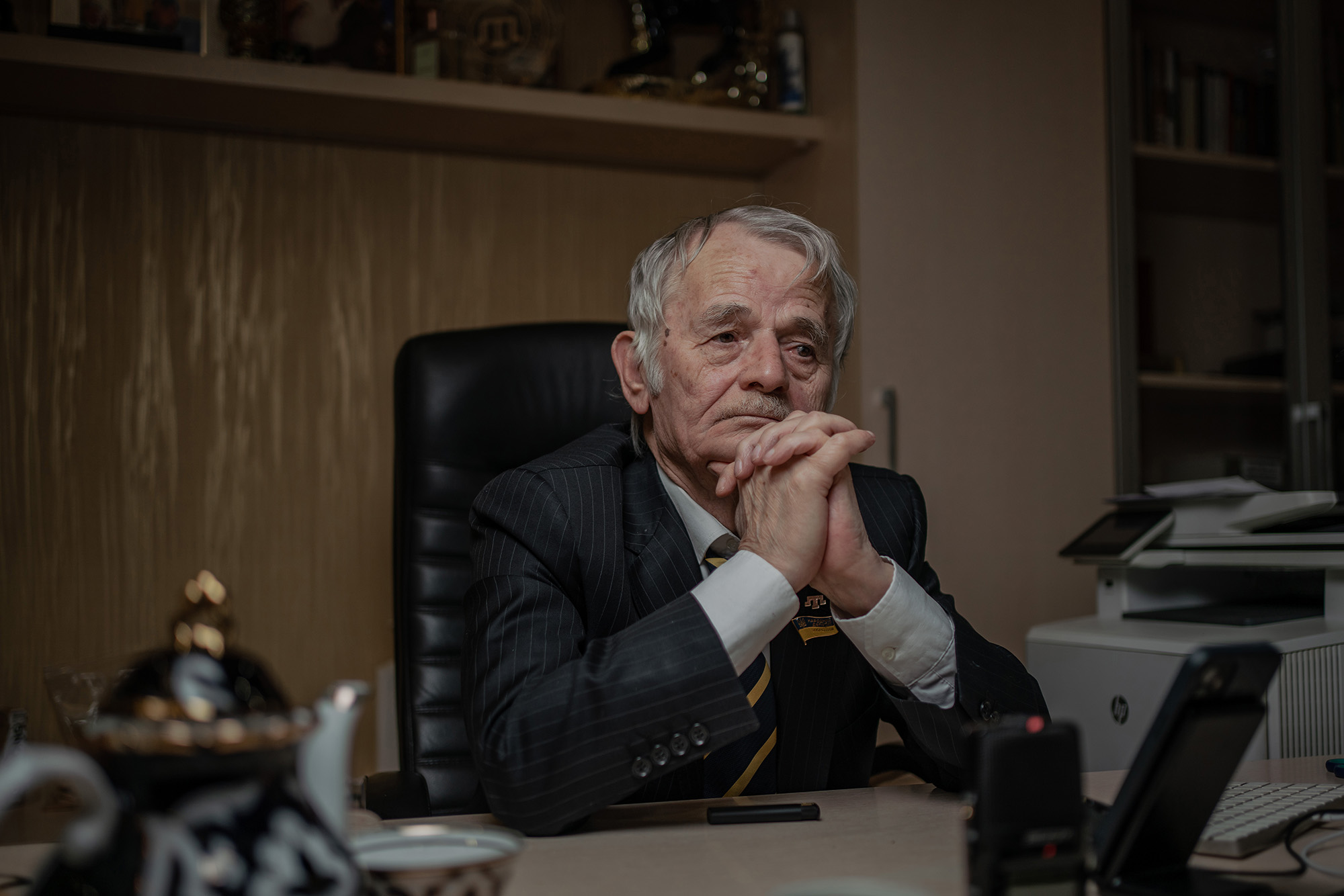
According to Mustafa-aga, people who had lived in Crimea since the pre-war period treated the Crimean Tatars differently: “Quite a few people, especially in the older generation, remembered the Crimean Tatar language. They had warm memories of their Crimean Tatar friends and neighbors. I remember riding in a trolley bus with my friends on my first visit to Crimea in 1973, speaking our language. An elderly woman, a conductor, came up to us and said in pure Crimean Tatar: ‘You are back at last, my dears.’ She was happy to see us.”
A de-occupied Crimea is a safe Crimea, says Tamila Tasheva, the permanent representative of the President of Ukraine in the Autonomous Republic of Crimea. She says that Crimea must be cleansed of Russian troops and strengthened by the presence of the army of Ukraine and its partner countries. “On the other hand, our citizens must be fully involved in all processes,” she says. The central government must pay constant attention to Crimea. The peninsula must become an economically developed region that needs investments in various industries. And it is crucial to take into account the opinion of the Crimean Tatars, its indigenous nation.”
Tamila Tasheva agrees that Crimea must be a space of diversity: “It has always been so in the history of Crimea. But after 2014, diversity was destroyed and replaced by the Russian presence. Crimea must become a space where people respect the rule of law and human rights.”
It is human rights that Mustafa Dzhemilev has fought for all his life. First and foremost, for the right to live in his homeland. Mustafa Dzhemilev was convicted in absentia in temporarily occupied Crimea. He has not been home for nine years. The de-occupation of Crimea will be a homecoming for him—and for tens of thousands of other Crimean Tatars.
§§§
[1] Person’s ethnicity was recorded in forms and identity documents. (ed.)
[2] Samizdat (from Russian, ‘self-publishing’) was a form of dissident activity across the Eastern Bloc when individuals reproduced censored and underground makeshift publications, often by hand, and passed the documents from reader to reader.
[3] Tamizdat (from Russian, “там” / “tam” meaning “there”) was Soviet literature published outside the Soviet Union, often from smuggled manuscripts.
[4] Russian Soviet Federative Socialist Republic.
